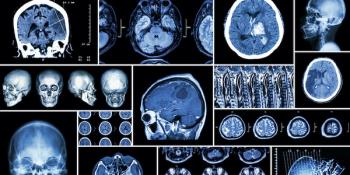
Although the exact underlying pathogenesis of migraine remains unknown, lifestyle modifications with regard to stress, sleep, exercise, and dietary considerations have been reported as beneficial for moderate clinical features.
Gianna is an associate editor of The American Journal of Managed Care® (AJMC®). She has been working on AJMC® since 2019 and has a BA in philosophy and journalism & professional writing from The College of New Jersey.

Although the exact underlying pathogenesis of migraine remains unknown, lifestyle modifications with regard to stress, sleep, exercise, and dietary considerations have been reported as beneficial for moderate clinical features.

More than two-thirds of individuals suffering from migraine do not get enough exercise, according to preliminary study findings. However, migraineurs who complete a minimum 2.5 hours of moderate to vigorous exercise a week exhibited reduced rates of migraine triggers including stress, depression, and sleep problems.

An analysis of human genetic and biomarker data found that tuberculosis was a risk factor for Behçet disease, a noninfectious uveitis condition.

Low-quality maternal diets may increase the odds of offspring being considered overweight or obese, according to study results published in BMC Medicine.

As Medicaid is a federated program between states and the federal government, it has historically been difficult for innovation to spread state to state, hindering any comparison of quality metrics.

An anxiety screening tool should be included during initial assessments of migraineurs by medical practitioners, according to the authors of a systematic review published in Frontiers in Neurology.

The SURPASS program, which consists in part of SURPASS-3 and SURPASS-5, is testing the efficacy and safety of tirzepatide, a novel investigational once-weekly dual glucose-dependent insulinotropic polypeptide and glucagon-like peptide-1 receptor agonist.

During a 2021 AcademyHealth National Health Policy Conference session, members of The Commonwealth Fund Task Force on Payment and Delivery System Reform discussed policy recommendations aimed at preparing the United States for future pandemics and addressing care inequities brought to light by the coronavirus disease 2019 crisis.

In a panel at the 2021 AcademyHealth National Health Policy Conference, representatives from 3 community health plans across the United States discussed how payers are driving telehealth access and utilization in the wake of the coronavirus disease 2019 pandemic.

Former HHS secretary Kathleen Sebelius and Sachin Jain, MD, MBA, CEO of SCAN Group and Health Plan, took time to reflect on the advent of the Affordable Care Act (ACA) and examine the Biden administration’s opportunity to enact influential health policy on the first day of the 2021 AcademyHealth National Health Policy Conference.

Kicking off the 2021 AcademyHealth National Health Policy Conference, Marcella Nunez-Smith, MD, MHS, stressed the important role that accurate data play in the effort to prioritize health equity during the coronavirus disease 2019 pandemic.

A global analysis of 9 systematic reviews found a consistent association between vision impairment, eye diseases, and reduced quality of life.

Gerard Criner, MD, FACP, FACCP, offers insights on the next steps for triple therapy, challenges of early COPD diagnosis, and how the pandemic could impact long-term lung health.

Compared with patients with Parkinson disease, rheumatoid arthritis, or epilepsy, those with multiple sclerosis exhibited higher rates of medication adherence throughout the first year of treatment.

In the placebo-controlled trial, 86% of participants who received semaglutide attained at least a 5% reduction in total body weight.

Using optical coherence tomography, researchers found that length of disorganization of retinal inner layer, length of external ellipsoid zone disruption, and foveal avascular zone circularity were associated with visual impairment in treatment-naïve patients with diabetes.

Experts outlined the impact value-based insurance design (VBID) has had on the coronavirus disease 2019 (COVID-19) pandemic response and future potential applications of the model.

In a review published in Frontiers in Psychiatry, researchers outlined potential mechanisms accounting for comorbid bipolar disorder and migraine and examined therapeutic targets for treatment to improve prognosis in these patients.

Results of a longitudinal prospective case-control study found rates of retinal thinning were higher among individuals with sickle cell retinopathy compared with individuals without the condition.

Migraine is a potential risk factor for asthma and asthma is a potential risk indicator for migraine, authors of a systematic review and meta-analysis concluded.

Prediabetes may not be a robust diagnostic biomarker for predicting future diabetes development in older adults.

After 4 weeks of a standard treatment regimen, patients demonstrated a 75% reduction in the Psoriasis Area and Severity Index score (PASI).

A new study published in JAMA Psychiatry found emergency department (ED) visit rates for mental health conditions, suicide attempts, drug and opioid overdoses, intimate partner violence, and child abuse and neglect all increased between mid-March through October 2020, compared with the same time period in 2019.

Results of a prospective cohort study suggest history of gestational diabetes (GD) may promote development of atherosclerotic plaque, potentially increasing the risk of future heart disease among women, even in the absence of hyperglycemia.

Greater exposure to particulate matter2.5 was associated with an 8% increase in self-reported age-related macular degeneration (AMD).

Survey results indicate a significant association exists between migraine and arthritis among women, adults aged 45 years or less, and those over age 65.

A substantial proportion of patients with inherited retinal disease could be treated with base editing, while therapeutic strategies that focus on common variants could be used to treat a large number of patients with the disease, according to study results.

There needs to be broad acceptance of the role systemic racism plays in social determinants of health in order to improve metabolic outcomes among minority populations in the United States.

Among patients with episodic migraine in whom 2 to 4 preventives were not useful, erenumab was efficacious in improving functional outcomes after 12 weeks of treatment.

With the ongoing coronavirus disease 2019 pandemic, a rising number of uninsured Americans, and a new Democratic president and Senate majority, 2021 is shaping up to be a dynamic year for health care policy.

259 Prospect Plains Rd, Bldg H
Cranbury, NJ 08512
© 2025 MJH Life Sciences®
All rights reserved.
